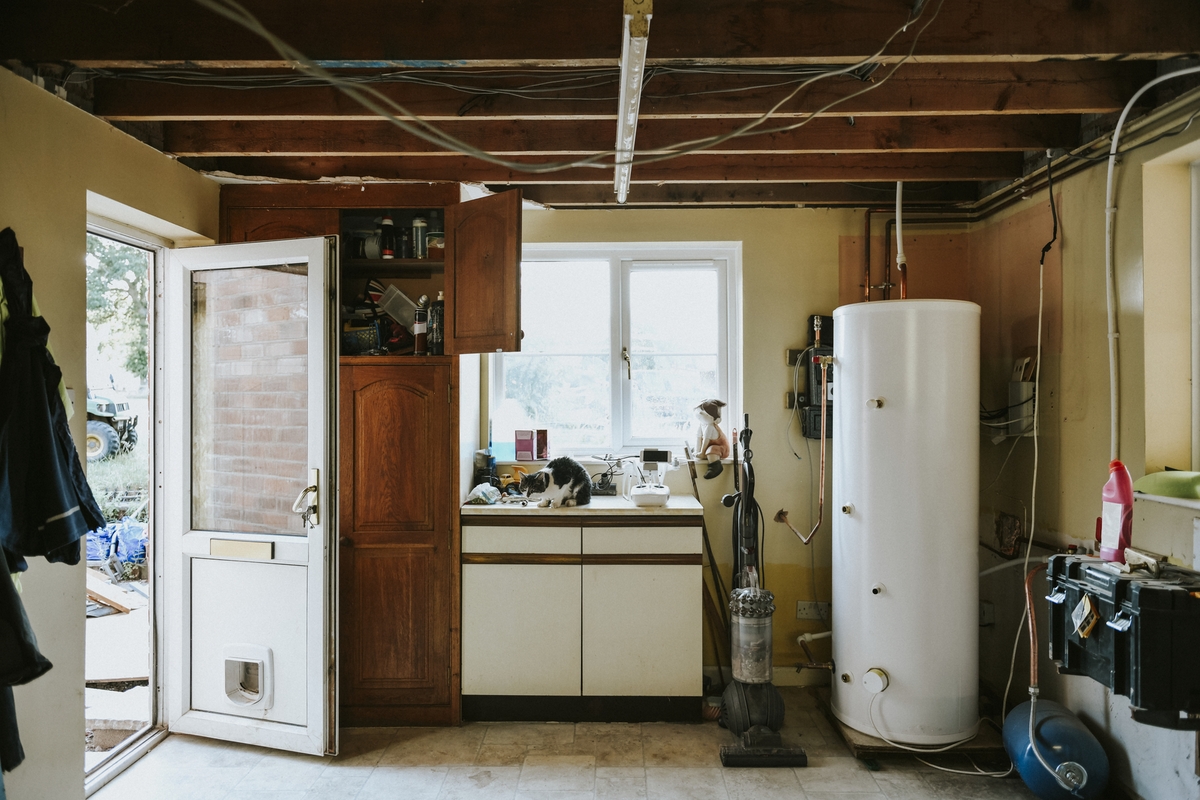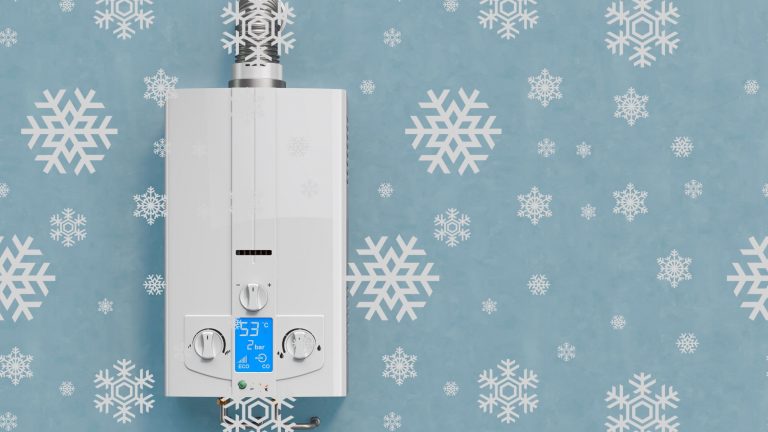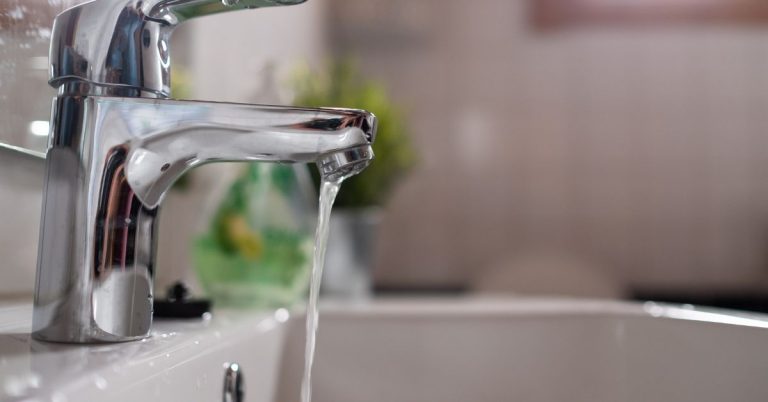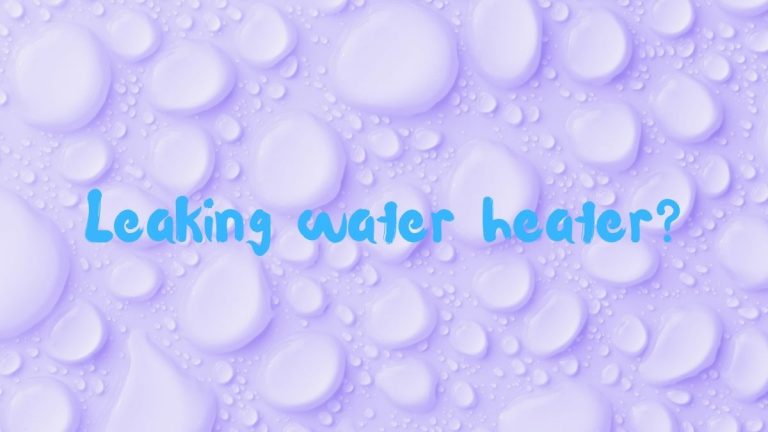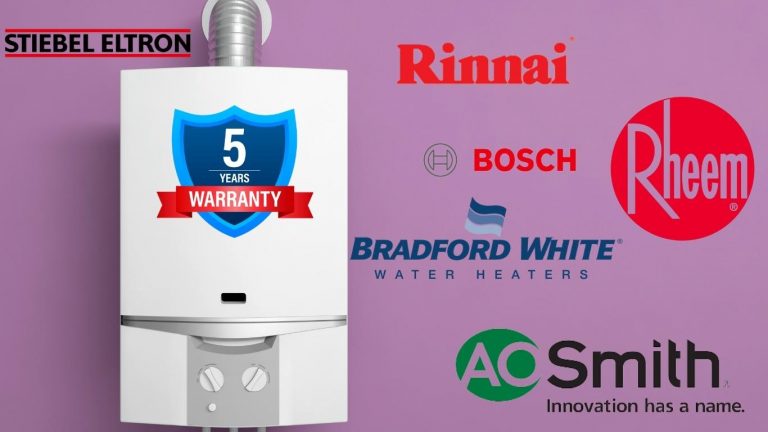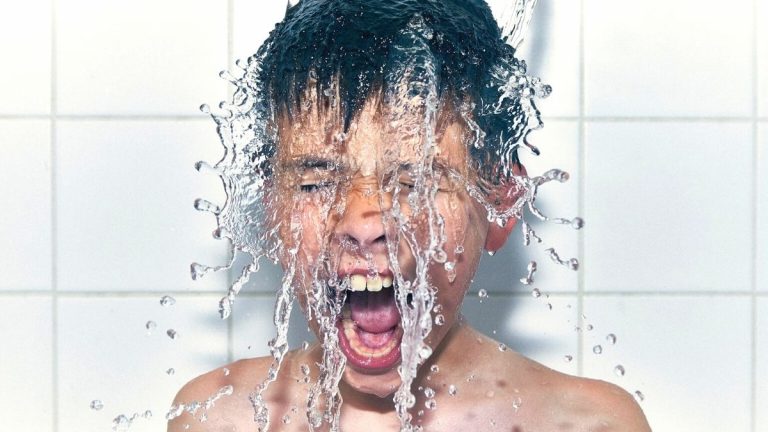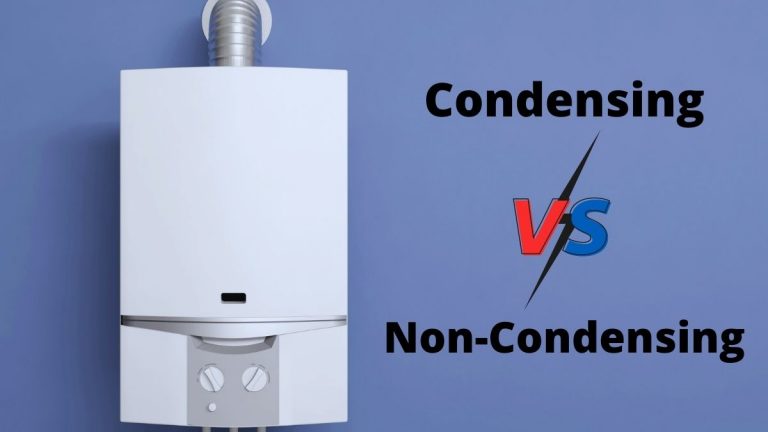The Ultimate Water Heater Buying Guide in 2022
Whether you are looking for a water heater for your new home or replacing the old one, you will want to make sure that you get the right water heater that can handle your hot water demand and not be so much of a burden on your budget.
According to energy.gov, water heater accounts for upto 14% to 18% of total household energy consumption. That means if you buy an efficient water heater then that can result in great savings.
Earlier, there weren’t many water heating options available and they weren’t that energy efficient either.
Things are a lot different now and many varieties. So you must get full a picture of the options available to you before making the decision.
Things you need to understand while selecting a water heater:
- What are the different types of water heaters and which is right for you?
- What size water heater you will need?
- Should you go for gas-powered or electric?
Different types of water heater
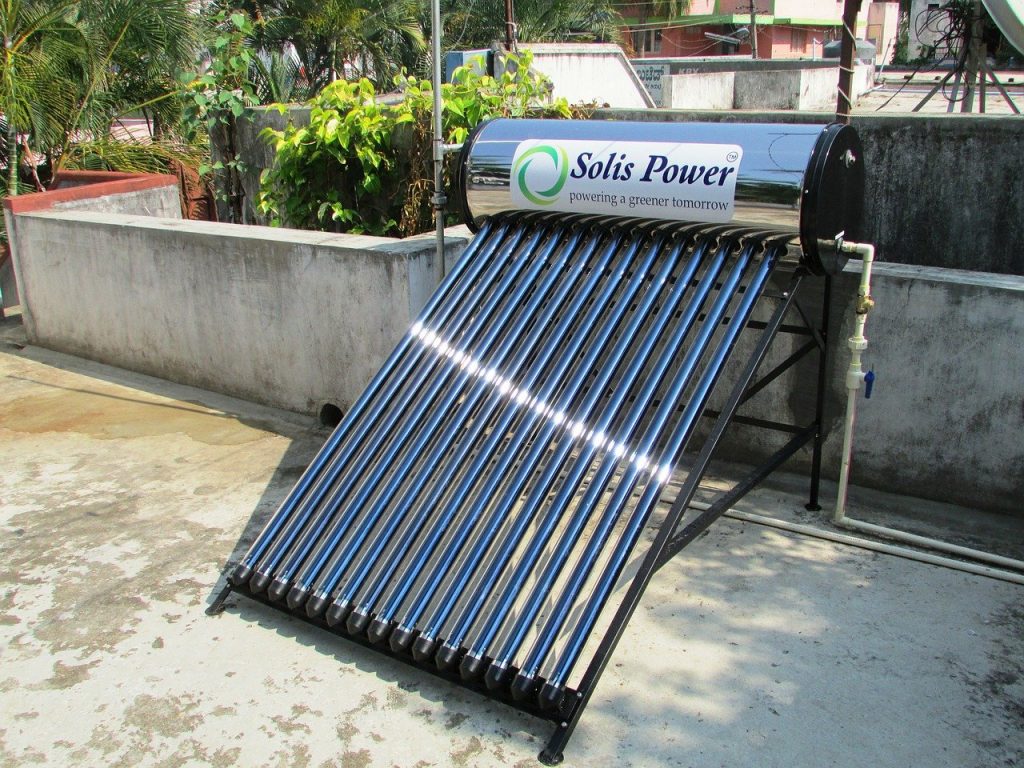
Today, there are many types of water heaters available than before which is a good thing but can make you confused as well. Each type has its pros and cons plus one doesn’t suit all. So let’s learn a bit more about those.
Storage tank water heater
These are the conventional tank water heaters. In this type, water is heated and stored in a well-insulated water tank from which water can be drawn via fixtures like hot water tap or showerhead.
The tank water heaters keep the reserves of hot water all day and night. The tank makes the overall heating system bigger and occupies a lot of space.
The best thing with a tank water heater is you can use multiple streams of hot water at the same time without facing a low flow rate.
But the problem you might face with them is having to wait hours to get hot water once you have used the whole tank (which happens when you draw the whole capacity at the same time).
Another drawback is that the water heater has to use energy all the time to keep the water in the tank hot all the time. That means it has to use energy to keep water hot even when not needed. That’s a lot of inefficiencies and increased energy costs.
Tankless water heater
Tankless water heater technology is rather new compared to tank types. As you can guess from the name itself, these are water heaters without a tank.
These water heaters don’t store the hot water, instead, it instantly heats the water when required. That’s the reason tankless water heaters are also called instant or on-demand water heaters.
One of the best things with a tankless water heater is you practically don’t run out of hot water like you would with tank type.
And since it only uses energy when hot water is needed, the tankless water heater is at least 20 to 30% more energy-efficient compared to the tank type.
Tankless models are also smaller and more compact compared to tank types and are easier to fit inside the home.
However, the tankless water heater has a limit to the amount of hot water that you can draw at a time, called gallon per minute(or GPM). Implying, there’s a limit to the number of hot water streams that you can run simultaneously with a good flow rate.
Point of use or utility water heater
Point of Use or POU water heater is opposite to centralized water heater system which supplies the hot water for the whole home.
POUs are used to get hot water from a single fixture like the sink, faucet, shower, or whatever it may be. These are compact in size, available in tank, and tankless design that can easily fit near the fixtures. We usually use POUs where the centralized system is far away or insufficient to meet the demand.
Heat pump (hybrid) water heater
Heat pump water heaters work on the principle that heat is already present in the air.
It uses heat available in the air to warm the water. What it does is suck the air, compress it, and transfers the heat generated in the process to heat the water.
Heat pumps are also called hybrid water heaters cause it uses an electric coil to heat the water to meet the increase in hot water demand during peak times.
Heat pump water heaters can be at least 3X more energy efficient compared to tank-type water heaters and can save you upto $300 on energy bills annually.
Since heat pump exhausts cold air, it can help to cool your house in summer which is a plus but the same cooling goes in winter as well.
Such a water heater system requires unobstructed surroundings to work efficiently. And also heat pumps are more efficient in hot weather with temperatures 40°F or high.
Solar water heater
Solar water heaters can be the most efficient and money-saving type if you live in the right weather conditions. Such a system works on renewable solar energy sources. Solar water heaters feature collectors, a large body that is installed on the roof. The water flows through the tubes of this collector which then get heated from the sun’s heat. This hot water is then stored in the insulated tank for use. Solar water heaters are ideal for places with hot weather.
The solar water heaters work completely on renewable energy sources. No electricity or gas expenses and thus it can save you hundreds of dollars annually on energy costs.
The thing with a solar water heater is that it involves a large initial investment. The good thing is, these systems can be eligible for a 30% federal tax credit on installation costs.
Also, you will want to have a backup heating system during the time of cold or cloudy weather.
Model type: Tank or tankless
There are a few important pros and cons involved with both tank and tankless type models. Let’s get to know them:
Pros: Tank
- A tank water heater can provide a steady flow of hot water across multiple fixtures at the same time.
- Tank water heaters are mostly cheaper than tankless
- The maintenance and flushing of sediments and calcium are easier and usually, you can do it yourself.
Cans: Tank
- Tank water heaters are less energy-efficient than tankless
- Bigger in size and require large space
- Once run out of hot water, you have to wait for an hour to get hot water.
- Low life in the range of 15 years max
Pros: Tankless
- These are highly energy efficient
- Usually compact and can be installed on walls and in smaller spaces.
- Provides unlimited hot water. No need to wait.
- Have high life with more than 20 years.
Cons: Tankless
- Can be expensive than tank-type
- You can not run multiple hot water fixtures at the same depending on heater size.
- Maintenance and flushing requires professional
Fuel source: Gas vs Electric
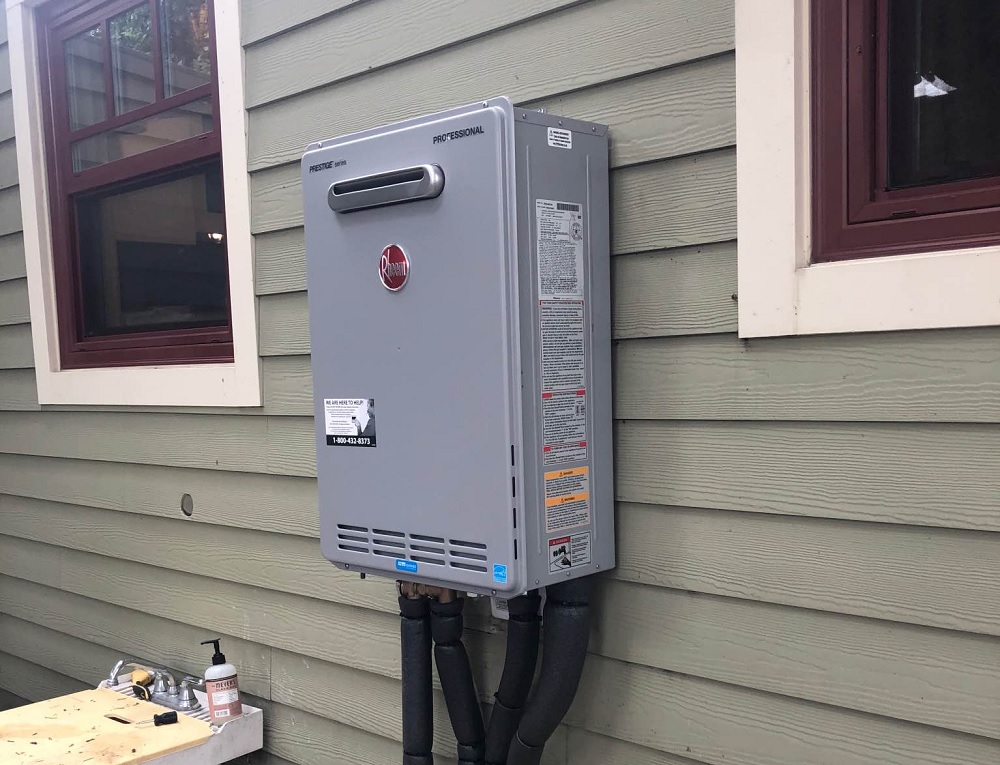
Now that you know the different types of water heaters in existence, let’s find out another important concept: fuel type.
If we ignore the solar-type, all the other water heating systems use either electricity or gas( natural gas, propane, or oil) to heat the water.
Going for one fuel type over another can have a major impact on your overall installation expenses and the space occupied by the water system.
Electric water heaters
Almost all homes in the US have access to electricity. So electric water heaters can be used anywhere. Plus, these are cheaper and less complicated to install than gas-type water heaters. Usually, the unit and installation for an electric water heater cost between $1000 to $1700 which can vary.
However, since in most places electricity is expensive compared to gas, your monthly electricity cost can get higher. You can check out the review of our top whole house electric tankless water heaters here.
Gas water heaters
Gas water heaters on the other hand are a little complicated. You need to install a gas line. The water heater burns gas that exhausts carbon monoxide and thus you will also need to have proper venting for the exit of these gases. This gas line and venting make installation pretty expensive. You can expect to pay $1500 to $3000 for the unit and installation of gas water heaters.
Traditional gas water heaters are also less efficient because a lot of heat is lost to these hot exhaust gases.
The energy efficiency of the gas water heater is in the range of 0.5 to 0.6. Meaning it converts 60 cents of gas into heat for every dollar of gas it uses. Electric water heaters are more efficient, with a range of 0.7 to 0.9.
However, an expensive and more efficient condensing gas water heater system exists that makes use of hot exhaust gases to heat incoming cold water.
If we go by the stats, a gas water heater costs $30 in a monthly gas bill for the average home, while an electric type costs upto $42.
Some water heaters may cost you less at the beginning but can get pretty expensive over time to operate.
You can learn more about gas vs electric water heaters here.
Temperature rise
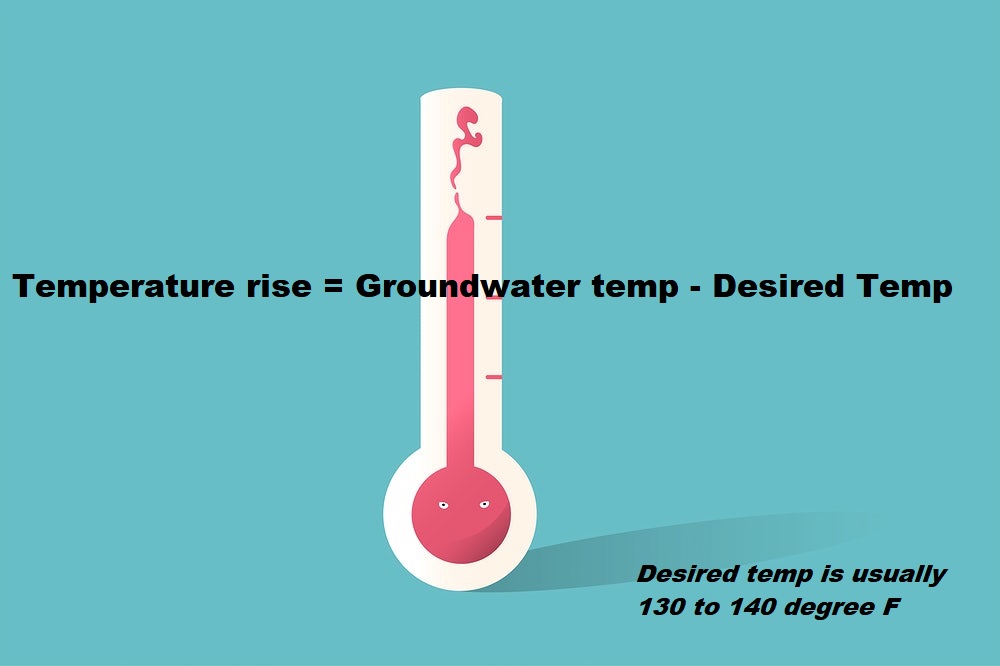
Temperature rise is another important factor that you will want to consider while shopping for a water heater.
What you will want to know is how much temperature the water heater can raise of the water. Temperature rise number depends on the temperature of the place you live.
To know the required temperature rise, simply do the math of subtracting the desired temperature of hot water from the temperature of your groundwater.
Most people will want hot water temperature to be in the range of 130 to 140°F. And say the groundwater temperature of water at your place is 50°F then:
140 – 50=90°F
In this situation, 90°F is the temperature rise you should be looking for in your new water heater. You can find these details in the product description. You will also want to consider the lowest groundwater temperature during winter.
Sizing the water heater
Once you have finalized what type of water heater you are gonna have and what fuel source it will run on, the next important step is to determine what size you need.
Let me make it simple for you.
You will want a water heater that is big enough to provide sufficient hot water when multiple people are using it at the same time. What could happen if you don’t have a water heater of proper size is that you will run out of hot water and will have to wait hours for the water to get heated (in a tank situation), or water flow will be poor (in the tankless situation).
Water heaters have limitations on the amount of hot water they can provide at a time. So selecting the proper size is important to avoid frustration in the future.
Now, the size of the appliance you need will depend on the size of your family and its hot water needs.
Sizing tank water heater
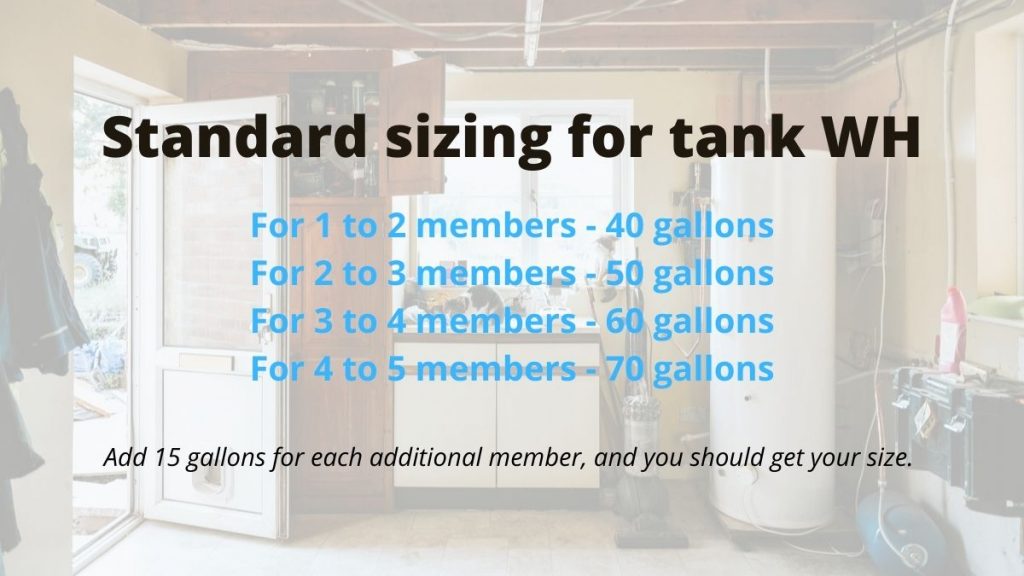
Here’s the basic sizing based on the number of members in a family:
- For 1 to 2 members – 40 gallons
- For 2 to 3 members – 50 gallons
- For 3 to 4 members – 60 gallons
- For 4 to 5 members – 70 gallons
Add 15 gallons for each additional member, and you should get your size.
There’s also a term related to a tank water heater, called first-hour rating (FHR). It tells about how many gallons of water the heater can heat during refilling. The better rating, the faster it heats the water.
Find out your peak hour and how much water you use during this time. For most people, it’s morning when multiple fixtures are being used. If you use 30 or 35 gallons of water during peak hours then look for a water heater with that FHR.
Sizing tankless water heater
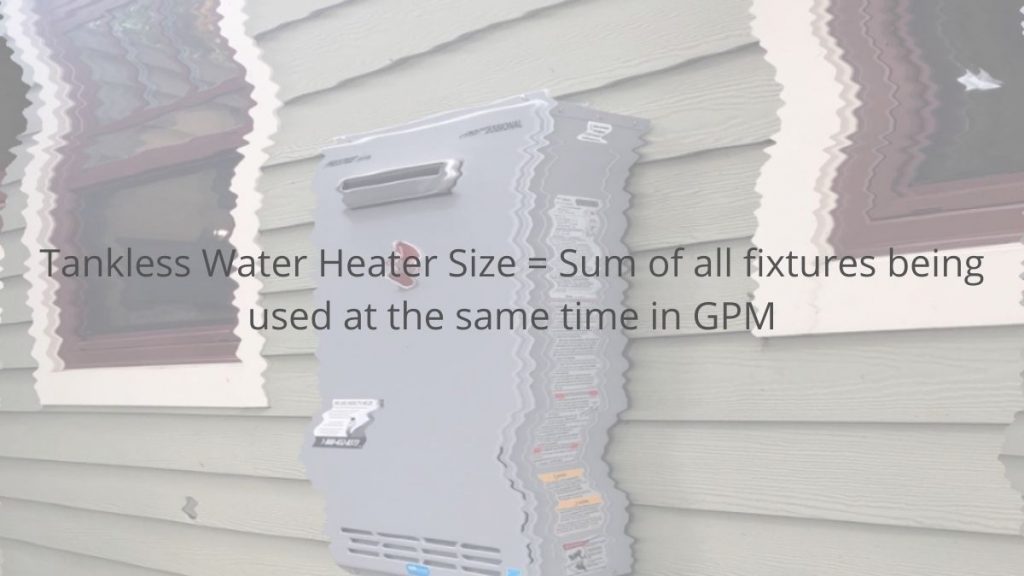
Now, tankless can be a bit tricky to size. Since they don’t have tanks, so what we instead focus on here is the amount of water the tankless water heater can heat in a minute. It’s measured in GPM.
So sizing tankless is independent of family size and depends on the maximum number of fixtures you are gonna use at the same time.
If you undersize it then what could happen is you may face a low flow rate situation.
Let’s say that you use a bathroom shower (2.5 GPM), kitchen sink(1GPM), and a faucet (1.5GPM) at the same time.
Doing some maths:
2.5+1+1.5=5GPM
You will need a tankless water heater that can heat water at 5GPM for the above situation.
*the above GPMs for different fixtures are a national average and the GPM of fixtures at your home could be different. To save water and get a small-size tankless heater you can install low-flow fixtures.
Additional features
Now you have gone through all the basics of a water heater and are probably excited to shop but don’t you like extra features? Such features aren’t just fancy but can help you in saving on energy bills and inconveniences.
Here are a few of the extra features that you can look out for:
Energy Star ratings and Energy Efficiency(EE)
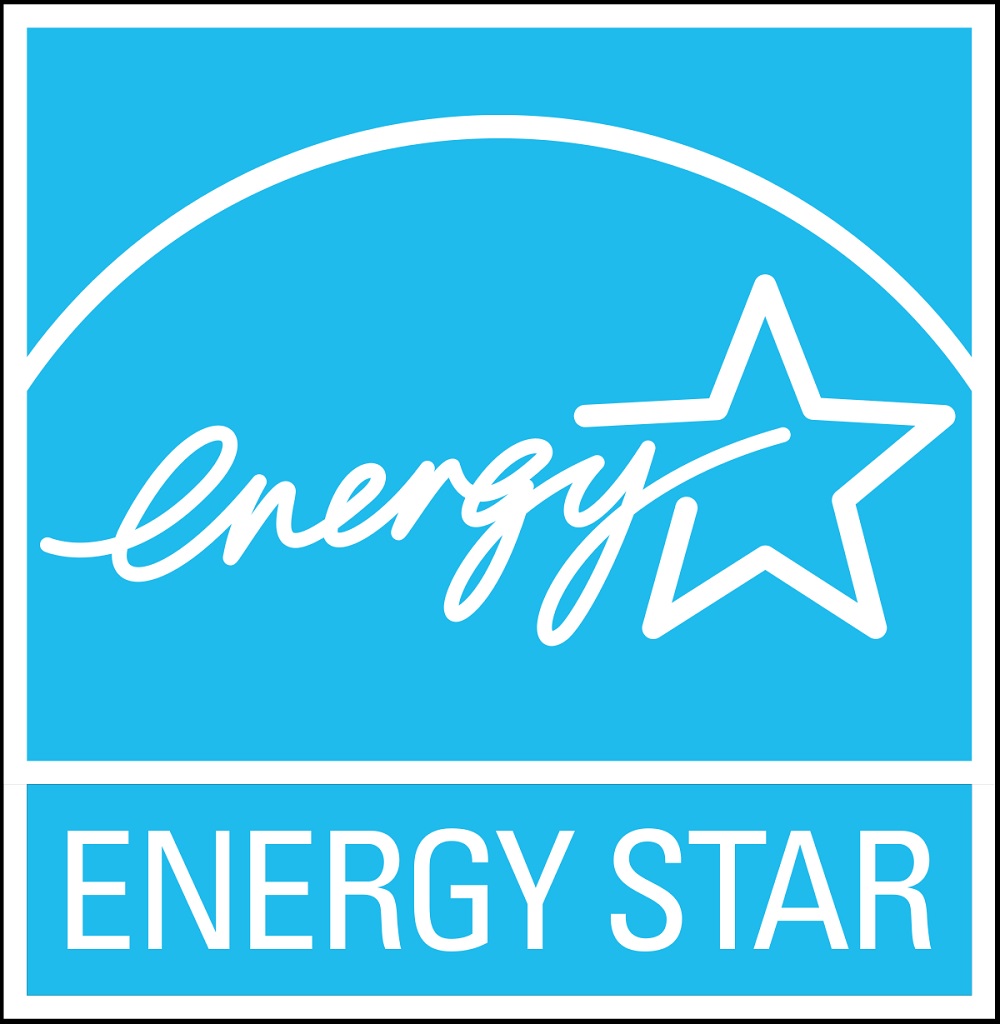
Look for water heaters with Energy Star ratings. It is a reliable label that tells you that the heater is energy efficient and will save you money in the long run.
Water heaters with ES ratings save 20 to 30% more energy than those without them.
Also, refer to the yellow/black EnergyGuide sticker present on all water heaters. It gives you an idea of how much it will cost you annually on the energy bills. Use it to compare different models.
You will also find energy efficiency information in the product description. The higher the efficiency number, the more expensive the water heater can be but the more it will save you in long run as well.
Dry fire protection
You will find this feature in most of the latest electric water heaters. The role of this dry fire protection is to turn off the heating element when no water is detected and prevents it from burning out.
Smart Wifi support
Now in this wifi-enabled world, how can water heaters lag?
You can go for wifi-enabled water heaters to enjoy features like being able to control water temperature, get low hot water alerts all remotely from your smartphone.
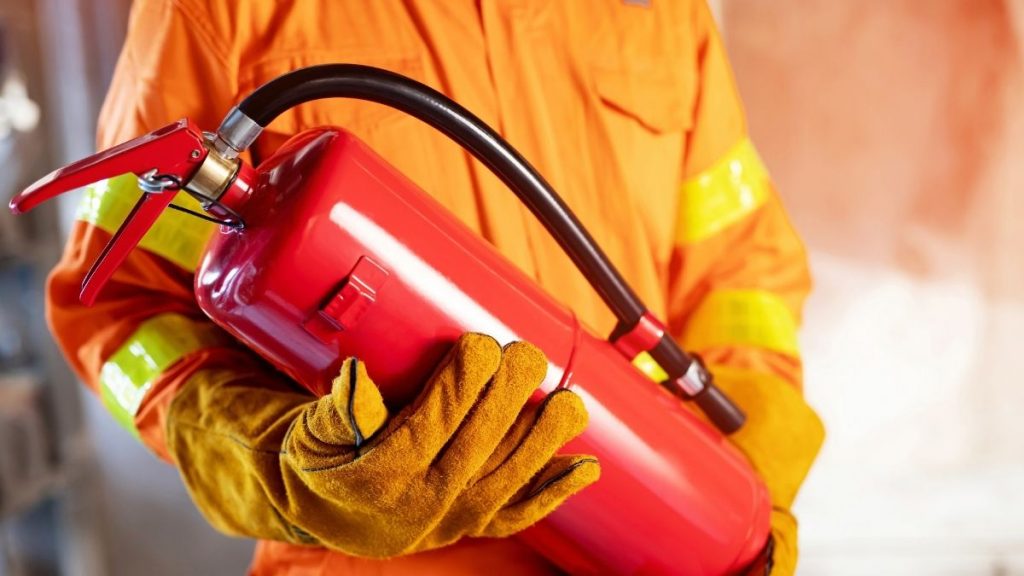
Safety comes first. So when you are out shopping for a new water heater, you must know the safety risks involved with the appliance, if any.
One of the first safety issues that come into mind when thinking about water heaters is gas leakage.
Gas water heater involves dealing with gas lines. So there’s always the risk of gas leakage and fire. If you plan to buy a gas-powered water heater then make sure you regularly do inspections and maintenance of any gas leakage.
If you go with a tank water heater then you will not want to keep the water temperature lower than 120°F(which some people do to avoid scalding). At temperatures under 120F, there’s the possibility of toxic bacteria growth in the tank that could even explode the heater.
What’s next
I have tried to make this buying guide as simple and easy to understand as possible.
Now, if you have gone through our ultimate water heater buying guide then you have a complete understanding and you should easily be able to select the right water heater for you.
First, go out and get these data points:
- Your peak hour water needs i.e how much max hot water you could use at a time Or
how many fixtures you could use at the same time and calculate the GPM for tankless. - Find out the groundwater temperature at your location or maybe the temperature during the coldest days
This information is sufficient to give you a head start towards finding you the right water heater.
Contact me if you feel stuck with your data points and I’ll try to help you choose myself.
Water heater buying guide: FAQs
What should I look for when buying a hot water heater?
The first is fuel type. If the available fuel at your place and natural gas and it’s cheaper then go with gas water heater. Then what size water heater do you need. Decide size based on your peak hour usage. How energy efficient is the water heater. Try to buy a water heater with Energy Star ratings. Energy-efficient water heaters could be expensive but they pay off in long run. You could also look for extra features like wifi control.
Is a 50-gallon water heater enough for a family of 4?
It depends. It depends on your usage and the number of kids in the family. But on average 50 to 60 gallons is sufficient for a family of 4.
What is a good first-hour rating for a water heater?
The answer to this completely depends on your peak-hour hot water usage. Find out how many gallons of hot water are used during the peak hour at your home. If, say, you use 35 gallons of hot water then you can look for a tank water heater with a first-hour rating in the range of 35 or even 34 gallons.

